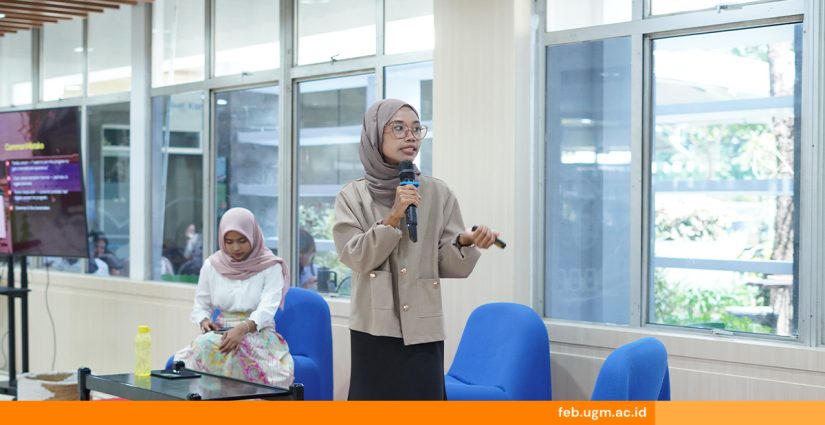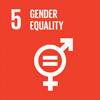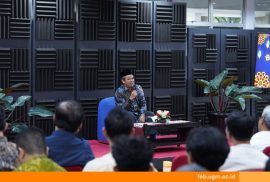
What do universities or scholarship committees actually look for in the thousands of motivation letters they receive? Many people still fall into common mistakes, thinking that simply listing achievements is enough. In fact, the key lies in the ability to narrate your journey and brand yourself authentically and personally.
This topic was the focus of the Motivation Letter Writing Workshop, part of the Student Week Sharing Session titled “Beyond Borders: A Journey Through Exchange Programs,” held on Thursday, August 21, at the FEB UGM Alumni Corner. Rohinun, an IISMA 2024 awardee, led the session at the Universitat Pompeu Fabra in Barcelona.
At the beginning of her session, Rohinun emphasized that a motivation letter differs from an academic essay. She explained that a motivation letter is more personal and persuasive. Its purpose is to convince readers that you deserve to be an awardee.
“A motivation letter must at least answer three core questions: the reason for choosing this program/university/country, what makes you different from other applicants, and your plans for contributing to Indonesia after completing the program,” she said.
Applicants should also avoid several common mistakes in writing motivation letters, such as using overly general statements, copying templates from the internet, which makes the letter rigid and impersonal, listing irrelevant achievements, lacking a precise flow, or using poor grammar.
Rohinun also guided participants in structuring their motivation letters systematically. The first step is to identify the personal brand you want to highlight, which should align with your interests or be relevant to your target program. To make it more engaging, she suggested opening the essay with a personal hook, such as an experience or turning point that strongly motivates you to join the program.
The next step is selecting your main achievements that support your personal branding using the STAR Method (Situation, Task, Action, Result) and emphasizing what you learned from those experiences. Equally important is linking your branding and experiences with the program, university, major, or country in a personal way to make your essay more persuasive.
Rohinun added that applicants should also clearly write about their future goals and realistic contributions, both during the program and after returning to Indonesia.
“Use the STAR Method to explain your plans and their connection to your branding and previous experiences. Write concrete contributions that you can make to the university, community, or society in a realistic and well-planned manner,” she explained.
Additionally, she emphasized ending the motivation letter with a brief closing statement in an optimistic and confident tone to reinforce why you deserve to be accepted.
“General tips for everyone: proofread with friends or lecturers, utilize AI assistance but maintain your writing style, and ensure the essay flows smoothly. Use experiences, numbers, and active verbs to convince the reader,” she advised.
She also reminded participants not to write the letter too long and to include only achievements relevant to a straightforward narrative. She says failures can help shape your character if you view them as valuable experiences.
“In the end, committees are not looking for those with the most achievements but those willing to learn, grow, and make an impact. A motivation letter is your chance to demonstrate all this,” Rohinun concluded.
Reportage by: Shofi Hawa Anjani
Editor: Kurnia Ekaptiningrum
Sustainable Development Goals











